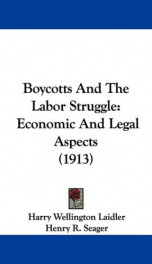socialism in thought and action

Purchase of this book includes free trial access to www.million-books.com where you can read more than a million books for free. This is an OCR edition with typos. Excerpt from book: CHAPTER III SOCIALIST THEORY: I. ECONOMIC INTERPRETATION AND CLASS STRUGGLE INTRODUCTION The Utopians, the Forerunners of Marxian Socialists. As has been indicated, socialists have analyzed the system of private ownership of the means of production and distribution, and 'have contended that it is inefficient, that it leads to an unjust distribution of wealth, and that it fails to afford an opportunity to the masses for the proper development of personality. While the socialist criticism of present conditions differs from that of other students of social problems, their conception of the future industrial state 1 and their theory of social evolution constitute their chief points of departure from other schools of social thought. A school with which modern socialists have often been confused, but from which they sharply separate themselves, is that of the utopian socialists. Social prophets have written their versions of their ideal state from time immemorial Plato, Campanella, Sir Thomas More are but a few of the social dreamers of past centuries. That school of thought, however, which is usually referred to as the utopian socialists, a school composed of such writersas St. Simon (1760-1825), Fourier (1772-1837), Louis Blanc (1811-1882), Proudhon (1809-1865), Cabet (1788-1856), and Robert Owen (1771-1858),2 did not arise until the latter part of the eighteenth century. These utopians portrayed in minutest detail the workings, as they conceived them, of a future cooperative state, wherein liberty, equality and fraternity would prevail, and inspired their followers to organize communities in Europe and America for the purpose of demonstrating the practicability of their dreams. In the United States the most spectacular of these communities was the Brook Farm exp...
Info about the book
Author:
Series:
Unknown
ISBN:
1177499983
Rating:
3.5/5 (1)Your rating:
0/5
Languge:
English
Users who have this book
Users who want this book
What readers are saying
What do you think? Write your own comment on this book!
write a commentif you like socialism in thought and action try:
Other books by this author
Do you want to read a book that interests you? It’s EASY!
Create an account and send a request for reading to other users on the Webpage of the book!



